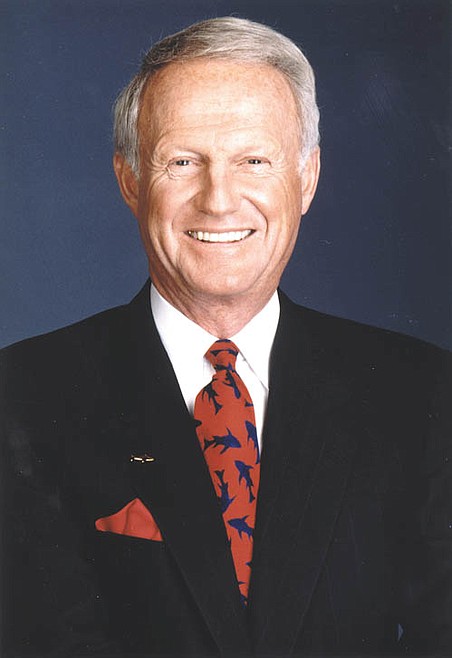Don't forget who you are
A king in a far-off land had an army of elephants. When his bravest, strongest elephant grew too old to fight, the king let him go free in a forest where he had everything he could eat and drink.
One day the elephant was drinking in a pond and got a leg stuck in the mud. As hard as he tried, he couldn't pull himself free. He finally just sat down, bellowing in pain. The king's servants heard him and rushed to help. But they couldn't pull the elephant's leg out of the mud.
The king went to see the elephant and, on the way, spotted a wise man from outside the village, so he asked for advice. The wise man thought for a moment and then said, "Play the drums of war."
The king assembled his army and ordered them to play their war drums. Soon the elephant perked up, rose and finally pulled his leg free.
All the elephant needed was to be reminded of who he was. People are much the same. Sometimes we forget who we are and what we are capable of and what we have accomplished.
And while it's unlikely you literally will get stuck in the mud, obstacles can set you back if you let them. When you feel like you can't escape the quicksand, you begin to question how you will ever get back on track. You need your own drums of war. You need self-confidence.
Self-confidence enables you to perform to the best of your abilities, without the fear of failure holding you back. It starts with believing in yourself.
Self-confidence alone won't help you succeed, but it's hard to get started or push through the inevitable obstacles without believing in yourself first.
Do you struggle with self-confidence? Almost everyone does at some point.
Self-confidence is extremely important in almost every aspect of our lives, yet many people don't believe in themselves as they should, and they find it difficult to become successful.
As one of my favorite motivational authors, Norman Vincent Peale, said, "Believe in yourself! Have faith in your abilities! Without a humble but reasonable confidence in your own powers, you cannot be successful or happy."
A great way to improve your self-confidence is by identifying and developing your strengths. One of the secrets of success is making the most of your strengths. First, though, you have to determine what your strengths are — and that may not be obvious, especially if you're just starting out or looking to make a career change.
I have had the privilege of mentoring hundreds of people over my lifetime. I always ask them two questions: What do you like to do? What are your strengths? Most have a good idea of what they like to do, but few of them know their own strengths.
Your strengths develop from a variety of sources: natural ability and aptitude, formal education, job experience, internships, research, hobbies, volunteer involvement and so on. You may not realize the depth of your knowledge or expertise, and that can seriously limit your job search or career path.
If you are in college, take advantage of aptitude and career-placement tests to determine your strengths, weaknesses and hidden talents. If you are not in school, you can find tests online or at your local library. Industrial psychologists are also most helpful in identifying areas that you should consider pursuing or avoiding.
A bit of Thomas Edison lore offers a tip for managers: Helping your employees develop their self-confidence is an important part of your role.
Edison experimented about 1,000 times in inventing the lightbulb. He called his "office boy" to test the bulb, but the boy was so nervous that he accidentally dropped it. He thought he would be fired, but Edison called the boy back two days later to test another lightbulb that Edison had constructed.
All his assistants were aghast and asked, "Why would you call on him? He might drop it again."
Edison responded, "It took me roughly one day to construct the bulb again, and even if he drops it again, I can construct the bulb within a day. But if I didn't give him the same task again, then he would have lost his self-belief and confidence, which would be very difficult to get back."
Mackay's Moral: Self-confidence by itself is of no value. It is useful only when put to work.
• • •
Harvey Mackay is the author of the New York Times bestseller "Swim With the Sharks Without Being Eaten Alive." He can be reached through his website, www.harveymackay.com, by emailing harvey@mackay.com or by writing him at MackayMitchell Envelope Co., 2100 Elm St. SE, Minneapolis, MN 55414.

